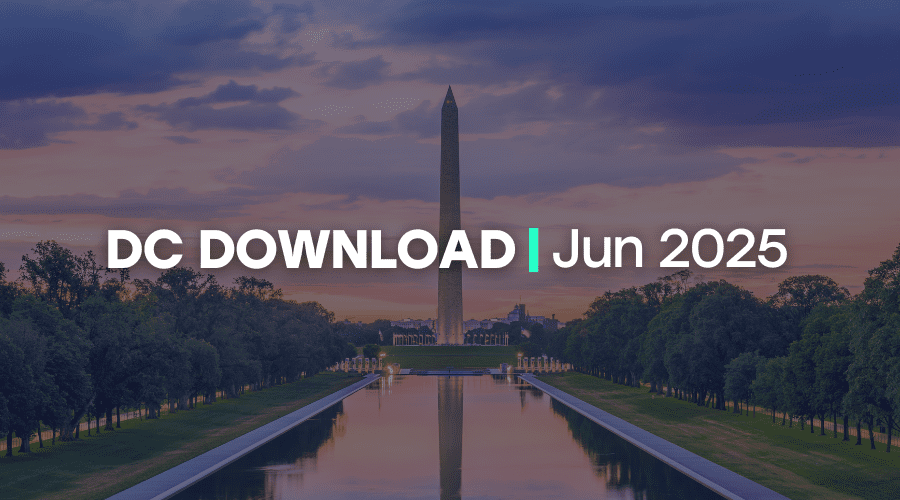George Floyd’s death last May focused a powerful klieg light on racial injustice in the U.S. Nonprofits were again confronting questions about equity and inclusion for the communities they serve.
At the Washington, DC-based National Health Council (NHC), those questions surfaced quickly. For years, the century-old nonprofit, now with more than 140 members, such as the American Heart Association and National Alliance on Mental Illness, focused on fairness, equity, civil rights, and ensuring patient voices are heard in the health care system. Floyd’s death coalesced those issues and racism almost simultaneously at a June board meeting.
“Our board pushed us, about what we, as leaders in the patient community, could do. That was not an easy question,” says Jennifer Dexter, NHC policy director. “We were having conversations in our health ecosystem that were simmering beneath the surface for a long time. It gave people the space to have hard conversations.”
Spurred by the moment the 46-year-old Black father of two girls stopped breathing and acknowledging the modern U.S. health care system took root during the 1940s and 1950s when racial segregation and other forms of discrimination were legal, those conversations led to this: A collaborative effort among NHC members to ensure that equity is centered in the 21st century health care ecosystem so that everyone can lead safe, productive lives.
For NHC and its members, equity includes race as well as gender identity, sexual orientation, disability, ethnicity, and age. The ecosystem includes caregivers, insurers, government policymakers, health care providers, health systems, employers, and communities in an increasingly diverse country.
By September, NHC and the National Minority Quality Forum (NMQF), a nonprofit partner and NHC member working to improve quality care for all Americans, held a virtual roundtable discussion to listen to ideas and make headway. Participants, Dexter says, discussed structural barriers and the vital role patient voice plays in advocacy and effecting change.
“There was such a clamoring to do something,” she says. “The issue was: ‘I’m the CEO of an organization or health group. I’m not necessarily going to be on the forefront. But I know, within my space, I know there was something I could be doing.’”
After that discussion, NHC, NMQF, and participants came up with four areas — or “pillars” — on which to focus:
- Promoting equity in delivery, including where health care facilities are located, what treatment is provided, and workforce make up.
- Improving access to comprehensive coverage, including availability and affordability.
- Partnering with leaders, researchers, and organizations to reduce health disparities and examine social determinants of health, such as housing, education, and economics.
- Supporting equity in medical innovation and development to include more diverse participation and feedback early in the process to identify and reduce bias.
“This came from the bottom up and the top down. We turned these pillars into a call to action and a consensus statement,” Dexter says, adding that CEOs of 58 patient groups or organizations signed their names to the statement. “That really was the permission to go ahead.”
This focus differs from past efforts, she adds, because previous ones might have been specific, say increasing diversity of participants in medical trials or safeguarding civil rights provisions in legislation.
“It is essential for the nonprofit sector to find ways to advance diversity and equity. Across the nonprofit sector — in health, the arts, trade associations, community services, or other areas — everyone has a part to play,” says Randall Rutta, CEO of NHC.
“For us, it’s health equity. Our efforts can transform the experience of all we engage in our respective causes and collectively contribute to transforming society. As employers, we can drive increased diversity through the nonprofit workforce.”
For Gary Puckrein, president and CEO of the National Minority Quality Forum, this focus is comprehensive and inclusive. “The system has, in too many instances, prioritized finances. From a disparity view, it means it could end up rationing care and lose sight of the equity question,” says Puckrein, a NHC board member.
Puckrein says policies and administrative rules can inadvertently perpetuate health inequities. In an unpublished research paper, he writes that federal officials prioritized the coronavirus vaccine for people age 75 and older but “failed to offer any recommendations about people of color as a vulnerable population in spite of their declared principle to ‘the burden that COVID-19 is causing individuals facing existing disparities.’”
One example: Not all African American or Black men live to that age because of chronic health conditions. That meant many elderly Black men in America under the age of 75 were excluded from receiving the vaccine, even though COVID-19 death rates and health issues are higher among African Americans and Blacks than white Americans.
“Patient advocates need to be catalytic agents,” he says. “They need to raise the questions that provoke change.”
The goal is to discuss each topic — or pillar — during each quarter of 2021. After that, NHC and NMQF hope to formulate the ideas for greater equity in the health care system into policy proposals to share with Congress, the White House, nonprofits, researchers, and the public.
The organizations also will share the proposals with their networks of supporters. Dexter points out the U.S. is home to at least 160 million people who experience chronic pain and disabilities – more than 1 out of every 2 people in the nation.
“Every dollar in the health care system comes from American households,” Puckrein says. “The job of the system is to mitigate people’s risk and give them the best possible life.”
The National Health Council (NHC) is a Washington, DC-based nonprofit organization and Independent Sector member. NHC works to provide a united voice for the 160 million people living with chronic diseases and disabilities and their family caregivers. The organization also envisions a society in which all people have access to quality, affordable health care that respects personal goals and aspirations to promote their best possible health outcomes. The American Heart Association also is an Independent Sector member. Learn about other Independent Sector members and becoming a member.



